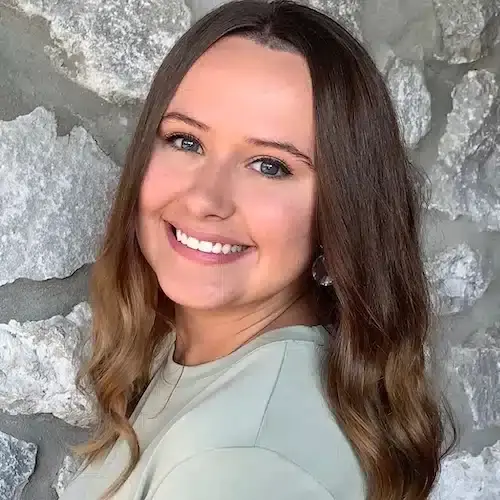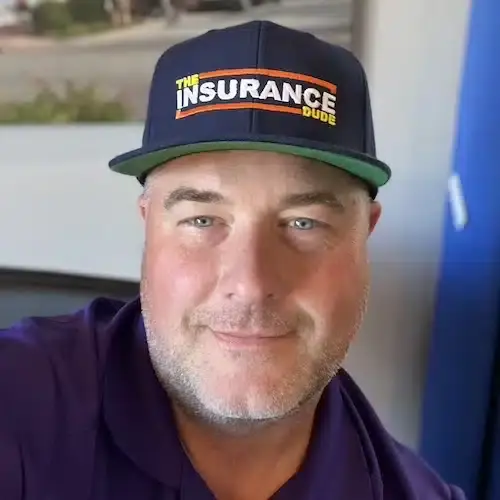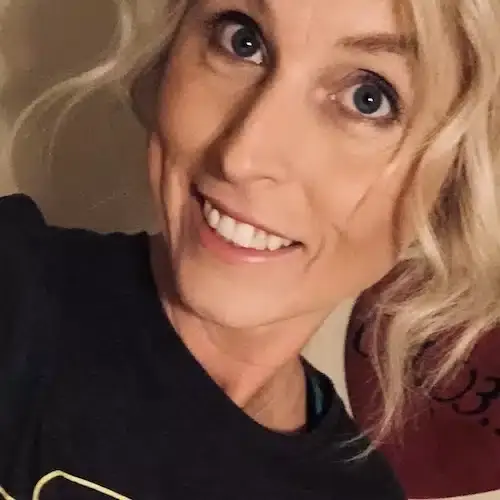When you see the word “insurance,” you probably think of auto insurance and health insurance. But homeowners insurance should be at the top of your list, too. What does Homeowners Insurance cover? Homeowners insurance protects your home from damage caused by natural disasters, theft, fire and more. It can also protect you from liability if someone gets hurt on your property—which is something that many renters don’t even realize is an issue for them.
In this article, we’ll go over everything you need to know about Homeowners insurance policies so that when it comes time to buy coverage for your home or rental property (or if you already have), you’ll be able to make an informed decision based on facts rather than assumptions or sales pitches.
What is insurance?
If you want to get the most out of your homeowners insurance, it’s important to understand how insurance works. Insurance is an agreement between you and an insurance company. You pay a premium (or “premium” or “insurance fee”) every month, and in return, if certain losses occur as outlined in your policy, the company agrees to pay for them.
What are the different kinds of insurance?
Before we get deeper into Homeowners insurance you should also be familiar with the different kinds of insurance commonly available in the market. Understanding the different types of insurance will help you know the difference between them. It will also give you clarity in what your homeowners insurance should be able to cover.
What are the different kinds of insurance?
Covers your personal property, such as your furniture and electronics, as well as the structure of your home. If a fire or other disaster forced you to move out of your house temporarily, homeowners insurance would cover the cost of renting another place while waiting for repairs. We’ll discuss more about this after this section.
Renter’s Insurance
Renter’s insurance provides coverage for renters in the event their personal belongings or home are damaged or stolen. It covers the cost of replacing lost or stolen property, paying for temporary housing if your apartment is uninhabitable due to damage and covering legal expenses needed to recover your possessions
Umbrella Insurance
Umbrella insurance is a secondary layer of protection that covers any and all claims that are not covered by your existing insurance policies. It covers expenses related to legal representation and any damages caused by an accident.
Life Insurance
Life insurance is an insurance that provides financial protection to your loved ones in case you die. There are different types of life insurance that you can choose based on your specific needs and goals.
Health Insurance
A health insurance policy is a contract between you and an insurance company that gives you access to medical care in exchange for an annual premium. The most common type of health insurance policy is a managed care plan, which means that your doctor will work with your insurance company to decide what care services you get, when you can see specialists or go to the emergency room.
Long-Term Care Insurance
Long-term care insurance is a type of insurance that helps pay for services such as adult day care, assisted living, private and/or shared room in a nursing home, home healthcare and much more.
Disability Insurance
Disability insurance is an important financial protection for anyone who wants to ensure their financial security in the case of an unexpected accident or illness. Disability insurance replaces a percentage of your income if you are unable to work due to sickness or injury.
Auto insurance
protects you against financial losses when someone else hits or damages your car. If one person’s car collides into another person’s car (or anyone else’s vehicle), both drivers could be covered under their own policies—but only up to certain amounts based on state law requirements.
What Does Homeowners Insurance Cover?
Homeowners insurance covers your house and other structures, personal possessions that are inside the home, liability for injuries or damage to others and their property, medical coverage for you or your family members if injured at home or on a trip.
It also provides additional protection against damages from floods, earthquakes, tornadoes and hurricanes. The cost of homeowners insurance is based on the value of your home as well as its location (the closer to an ocean or another body of water). Most insurers have different deductibles for different types of losses; typically the higher the deductible you agree to pay out-of-pocket in case of loss before your insurance kicks in.
Fire and Smoke
Your homeowners policy will cover the damage caused by fire and smoke, such as from a burning candle or cigarette. However, it’s important to note that if you accidentally start a fire and cause significant damage to your home or property, your homeowners policy will not cover any of the costs associated with repairing or rebuilding your home.
The same goes for fires that happen because of your negligence—you can’t expect to collect damages from an insurer if you are found responsible for starting the blaze.
Wind and Hail
If you’re hit by wind and hail, your homeowners insurance will cover damage to your property. That includes the roof, shingles, gutters and other exterior elements of your home. If any of those items are damaged by strong winds or hail storms (called hailstorms in some states), you’ll need to file a claim with your insurance company.
If there’s been lightning involved in the storm that caused the damage to your home, there’s one more thing you’ll need to do: notify the company as soon as possible after it happens so they can begin reviewing their options for coverage and filing a claim if necessary.
Theft and Vandalism
Theft and vandalism are covered under the property damage section of your policy. Burglary is when someone breaks into your home by force, such as a window or a door. Theft is when someone takes something from you without your consent, like money out of your wallet or jewelry that you left sitting in plain sight.
Vandalism occurs when there’s damage to personal property that isn’t caused by fire or natural disasters; for example, if someone smashes up your car with a baseball bat because they don’t like it—that kind of thing would be covered. The amount of coverage you get depends on the type of item that was stolen or vandalized and how much it costs:
Different policies will have different inclusions, computations, and rules. That’s why it’s important to read the contract and the fineprint before signing anything.
Lightning Strikes and Power Surges
Lightning strikes and power surges are covered under your homeowners insurance. How much you’re covered for depends on the type of coverage you have, but most policies cover a certain amount per occurrence (i.e., one bolt of lightning striking your home). If you are hit by lightning, call the fire department or 911 immediately if there is any sign of fire, smoke or burnt wiring.
If you don’t have a fire, call your insurance company and file a claim. You may need to submit receipts for repairs and other expenses related to the incident.
Damage from Falling Objects
If you live in an area where hurricanes are common, you likely know that your homeowners insurance can help to cover damages caused by falling trees and branches. However, it’s important to note that the state of Florida has specific laws regarding damage that is caused by falling objects.
In addition to fallen trees and limbs, damage caused by falling animals are also covered under this type of coverage. The same is true for damage that results from objects like construction materials or scaffolding falling from a building. Damage may also be covered if a person throws a rock off their balcony onto your property as well as other types of debris such as bricks or bottles thrown onto your property from nearby areas such as streets or parks.
If you’re not sure whether your policy covers this type of damage, simply contact your insurance provider directly so they can let you know what exactly is covered under their policy.
Damage from Impact by Objects and Vehicles
You might be surprised to learn that your homeowners insurance policy covers damage from impact by objects and vehicles. This kind of coverage even applies to damage caused by falling snow, hail, or rain.
If you have a claim for this type of damage, it’s important to keep in mind that the amount covered isn’t based on what you paid for your home but rather its replacement value (how much it would cost to replace your home).
Ask your insurance provider about their exact prices, coverage and computation.
Water Damage, Roof Leaks, and Sewer or Sump Pump Backups
As the name suggests, “water damage” covers damage caused by water. This includes both flooding that occurs from a broken pipe or a burst pipe, and sewer or sump pump backups inside your home. It doesn’t matter if it’s your fault or not—if you have this coverage on your policy and there’s damage due to water, the insurance company will pay for all repairs related to restoring your home back to its pre-loss condition.
The same goes for any personal items damaged by water: they’ll be replaced with new ones of similar value that are in good working order (and don’t smell like mildew). In addition, if the house is uninhabitable because of the loss and cannot be repaired within 30 days (or whatever period is specified in your policy), the insurer will pay temporary living expenses while repairs are made.
Natural Disaster Damage (if Covered)
If the damage is due to a natural disaster that’s covered by your policy, you’ll be covered up to the limit of your policy. But if you think it’s been damaged by something else, such as a fire or smoke damage, you may not be covered at all.
Just because these events aren’t considered “covered” doesn’t mean they won’t happen during the term of your policy; therefore, it’s important to check with your insurance company first before filing any claims related to those events!
Volcanic Eruptions and Earthquake Losses
If you live in an area prone to volcanic eruptions or earthquakes and loss of property occurs as a result of these events, your policy may cover the damage. However, you should know that volcanic eruptions and earthquakes aren’t covered under most standard homeowners insurance policies.
If you want to be sure that you’re covered for such losses, consider purchasing a separate rider (an add-on) from your insurer.
You’ll also want to make sure that any additional living expenses incurred because of the loss are reimbursed by your insurer like food bills or hotel stays while repairs are ongoing. If not included in your policy, ask about how much coverage is available for those costs too!
Once everything has been cleaned up after an event like this one happened: submit all required documentation including proof of ownership (i.e., title), photos or receipts related specifically to damages incurred during said incident(s).
The right policy can help you sleep easy at night
If you’re just getting started, it can seem like you need a law degree to understand homeowners insurance. Fortunately, there are plenty of resources available to help. It’s even possible to get an instant quote online.
To get started, it’s important to find the right coverage at the right price. You can do this through an independent agency or with a broker who can help guide you through the process and make sure your policy is tailored specifically to your needs.
Call Cribb Insurance Group Inc. to get more answers about the question “What does homeowners insurance cover?”
This list only contains the common coverage available in the market. Some policies may or may not include some of the things we listed here. However, you can probably add them as riders, if they are available. This list is meant to guide you so that you will know your options and you can ask your insurance company if they can include them or not.
When you’re ready to start shopping for home insurance, keep in mind that there are a number of different types of policies available to suit your needs. You can get more information about these options by visiting the website for Cribb Insurance Group Inc at www.cribbinsurance.com or calling (479) 286- 1066.





